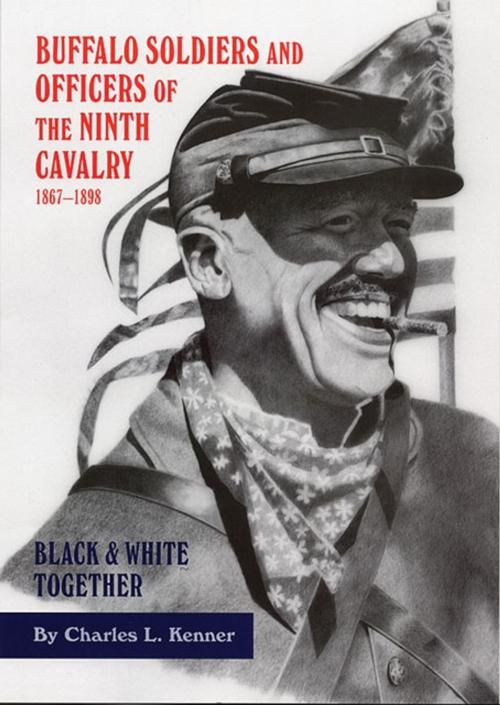Buffalo Soldiers and Officers of the Ninth Cavalry, 1867–1898
Black and White Together
Nonfiction, History, Military, Other, Americas, United States, 19th Century, Biography & Memoir, Historical| Author: | Dr. Charles L. Kenner, Ph.D | ISBN: | 9780806148083 |
| Publisher: | University of Oklahoma Press | Publication: | August 4, 2014 |
| Imprint: | University of Oklahoma Press | Language: | English |
| Author: | Dr. Charles L. Kenner, Ph.D |
| ISBN: | 9780806148083 |
| Publisher: | University of Oklahoma Press |
| Publication: | August 4, 2014 |
| Imprint: | University of Oklahoma Press |
| Language: | English |
The inclusion of the Ninth Cavalry and three other African American regiments in the post–Civil War army was one of the nation’s most problematic social experiments. The first fifteen years following its organization in 1866 were stained by mutinies, slanderous verbal assaults, and sadistic abuses by their officers. Eventually, a number of considerate and dedicated officers and noncommissioned officers created an elite and well-disciplined fighting unit that won the respect of all but the most racist whites.
Charles L. Kenner’s detailed biographies of officers and enlisted men describe the passions, aspirations, and conflicts that both bound blacks and white together and pulled them apart. Special attention is given to the ordeals of three black officers assigned to the Ninth: Lieutenants John Alexander and Charles Young and Chaplain Henry Plummer. The subjects of these biographies—blacks and whites alike—represent every facet of human nature. The best learned that progress could only be achieved through trust and cooperation.
The inclusion of the Ninth Cavalry and three other African American regiments in the post–Civil War army was one of the nation’s most problematic social experiments. The first fifteen years following its organization in 1866 were stained by mutinies, slanderous verbal assaults, and sadistic abuses by their officers. Eventually, a number of considerate and dedicated officers and noncommissioned officers created an elite and well-disciplined fighting unit that won the respect of all but the most racist whites.
Charles L. Kenner’s detailed biographies of officers and enlisted men describe the passions, aspirations, and conflicts that both bound blacks and white together and pulled them apart. Special attention is given to the ordeals of three black officers assigned to the Ninth: Lieutenants John Alexander and Charles Young and Chaplain Henry Plummer. The subjects of these biographies—blacks and whites alike—represent every facet of human nature. The best learned that progress could only be achieved through trust and cooperation.















